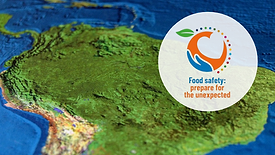International
In the wake of escalating concerns over climate change and its profound impact on global food safety and security, innovative solutions are imperative
Read More
Pathways to Implementing Food Systems Capacity Building Programs for Smallholder Farmers: Major Constraints and Benefits
Are these programs reaching the smallholder farmers most in need?
June 28, 2024
World Food Safety Day Exclusive: 'Food Safety is an Essential Part of Our Daily Lives'
A Q&A with Ana Maria Coronado, M.B.A., International Food Safety Expert and Consultant, Peru
June 7, 2024
Never miss the latest news and trends driving the food safety industry
eNewsletter | Website | eMagazine
JOIN TODAY!Copyright ©2025. All Rights Reserved BNP Media.
Design, CMS, Hosting & Web Development :: ePublishing












